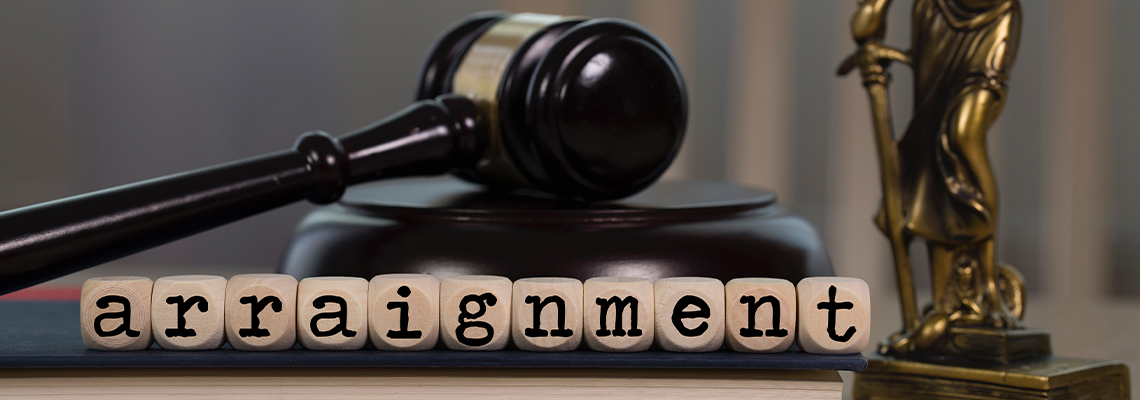
What to Expect at Your Arraignment
When a person is suspected of committing a crime, they may be arrested by law enforcement. Once arrested, the defendant will be scheduled to attend an arraignment and go through other steps in the criminal justice process to determine whether or not they are guilty and, if so, what kind of punishment is appropriate in their situation.
While an arraignment may seem like a formality, it is not something you should try to tackle on your own. As a criminal defense attorney at Venessa Bornost, P.A., I understand the importance of providing quality representation for my clients during an arraignment. After all, the outcome of your arraignment can set the tone for the rest of the criminal justice process in your case. If you or your loved one was arrested and is awaiting arraignment, contact my office in Dunedin, Florida, to get the legal representation you need. I also serve Pasco County and Hillsborough County.
What Is an “Arraignment?”
When someone is arrested and booked for a crime, the court has to issue formal charges and explain to the defendant the charges that have been filed against them. This process is called an “arraignment.” An arraignment is also the first court proceeding for the defendant and marks the point at which the defendant stops dealing with the police and begins dealing with the court.
When Will It Take Place?
When a person is arrested and held in custody, law enforcement in Florida must bring the defendant before the court within 24 hours of the arrest. This is known as the “first appearance.” It could take an additional two to three weeks for the arraignment to take place. How long it takes for the arraignment to occur depends on the jurisdiction. Any unreasonable delays may violate the defendant’s constitutional right to a speedy trial guaranteed by the Sixth Amendment.
What Will Happen at My Arraignment?
At your arraignment, you must show up on time and be dressed presentably. During the arraignment, the judge will read the charges filed against you and inform you of your rights, including your right against self-incrimination and your right to legal counsel.
Although you can wait until your arraignment to hire an attorney, it is best to get legal counsel as early in the process as possible. If you wish to have your attorney present at the arraignment, you cannot be arraigned if the court does not give you a chance to hire an attorney or select a public defender.
At the arraignment, the judge must read you the criminal complaint, indictment, and other charging documents. However, the judge will not read the charges if you do not want them read. After the charges are read (or not read), the defendant will be asked to make a plea. Before making a plea, it is best to consult with an attorney to discuss your options and determine what plea to make.
In many cases, the defendant may be eligible for a pretrial release, which is also known as bail. The judge will evaluate a number of factors, including the severity of the crime and the defendant’s criminal history, to determine whether or not a pretrial release is appropriate.
Do I Need an Attorney for the Arraignment Process?
While you can attend your arraignment without legal counsel, doing so can negatively impact your chances of getting the best outcome. Below are some of the ways an attorney can help you during the arraignment process:
Deciding your plea. Pleading guilty, not guilty, or no contest is a crucial part of the arraignment process. Your attorney will help you understand how you should plead in your specific case depending on the circumstances of your offense and the strength of the prosecution’s case against you.
Reducing your bail or arguing for your release on your own recognizance. During the arraignment, the judge will decide whether or not to release you on bail or your own recognizance. If the judge opts for bail, they will have to set the bail amount. Having an attorney at this stage can help you argue for the reduction of bail or convince the judge to release you on your own recognizance.
Challenging the evidence presented against you. In many cases, the defendant’s ability to avoid a conviction or minimize the penalties depends on the availability of evidence presented against them. Your attorney can help you review the evidence against you and explore inconsistencies in the prosecution’s case against you. For example, if your criminal defense attorney can prove that there was no probable cause to arrest you, the charges against you will be dismissed.
At Venessa Bornost, P.A., I represent clients who face criminal charges at all stages of the criminal justice process, including arraignment. I will stand by your side to zealously advocate for your rights and fight for the best possible outcome.
Here for You When Life Gets Tough
Your life is in the balance after getting arrested. You may not know what to expect at your arraignment and how to proceed. However, you do not have to go through this alone. As a criminal defense attorney at Venessa Bornost, P.A., I am here to help you navigate the arraignment process and provide you with the peace of mind you need during this difficult time. Reach out to my office today for a consultation.
